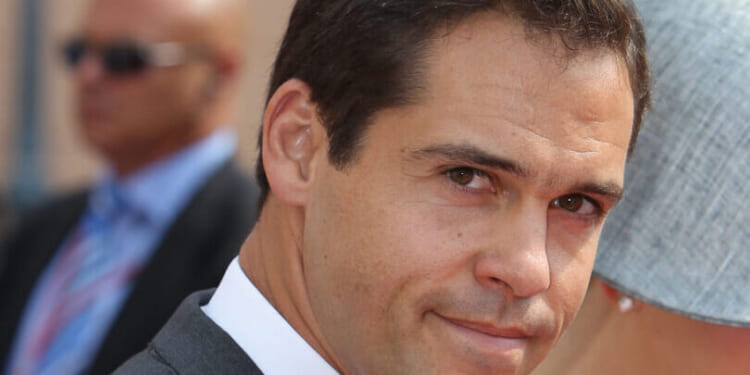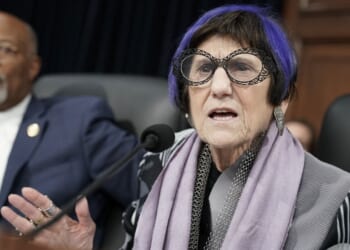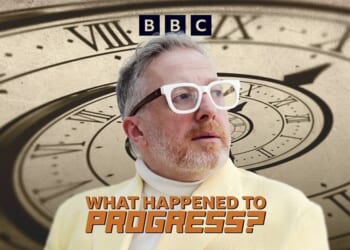(LifeSiteNews) — The heir to the line of French kings which reaches back to Saint Louis IX has declared his commitment to life and announced that he is ready to serve France in a re-established monarchy, if the French people desire it. The news comes amid political chaos and the government’s third collapse since the 2024 elections – in a scenario mainstream speculation suggests could entail the end of the French Fifth Republic.
Louis Alphonse de Bourbon, Duke of Anjou and Legitimist claimant to the French throne as Louis XX, warned in an October 8 Journal du Dimanche column that “the Fifth Republic, like its sisters before it, seems to be on the verge of collapse.” This follows the disintegration of Prime Minister Sébastien Lecornu’s government on October 6, after 27 days, intensifying fears of the Fifth Republic’s demise under President Emmanuel Macron.
In the same October 11 Canal News interview where he affirmed his willingness to serve as king if needed, Bourbon, a pro-life traditional Catholic, condemned France’s proposed euthanasia law, declaring, “I have always spoken in favor of life — and I’m pro-life. At all stages: from birth to the end.”
When asked about the possibility of the monarchy’s re-establishment in such circumstances he stated: “My family have served France for centuries. And if France asks for it, I will be at her service.”
The latest crisis began with Macron’s June 2024 snap elections. The vote produced a hung National Assembly. It split among the left-wing New Popular Front, Macron’s centrists, and the far-right National Rally. No bloc secured a majority. Macron has since cycled through five prime ministers. Lecornu’s cabinet, a reshuffle of prior figures, resigned under no-confidence threats.
France’s 5.4 percent GDP deficit and €3 trillion debt sparked market volatility. The euro dipped and bond yields spiked. The Telegraph has warned of “regime change.” Politico described unprecedented convulsion. Macron tasked Lecornu with caretaker duties until October 15, after which the future remains unclear. New elections or a sixth prime minister loom as Macron is under mounting pressure to resign – though he has repeatedly refused to do this.
In his Journal du Dimanche column, Bourbon wrote, “The political, institutional, and social state of our country continues to worsen.” He decried “a political crisis that is becoming more insoluble every day.” Parties, he said, “play their own game” rather than serve “the higher interests of France and therefore of the French.” He criticized the Republic’s “partisan logic” and “total absence of questioning.”
The system, he argued, is “a space of immobility and powerlessness.”
On Canal News, he stated, “I’m not in a position to remain silent…. At the moment I see France in an absolutely blocked situation, and I am filled with concern.” He added, “The tone of my discourse has never changed, but the situation has never been so grave. The French need hope.”
READ: UN warns France’s euthanasia plan undermines ‘right to life of persons with disabilities’
Bourbon envisions the monarchy as “above party quarrels, pacifying, unifying, to the defense of the common good.”
In his column, he praised monarchy’s “stability, the long term, a vision over several generations.” Leaders, he said, should “not transmit chaos to their successor.” He urged the people of France to “not forget that it was in the shade of the lilies that your freedoms flourished and that France reached its peak.” He hopes “monarchical heritage” is “sufficiently alive in the hearts” of the French to inspire “hope.”
On Canal News, he clarified, “The indispensable condition would be that France wants the return of the monarchy.”
Bourbon’s faith shapes his stance. A Traditional Latin Mass devotee, he is a member of the Order of Malta. He has long opposed same-sex marriage and adoption, arguing they undermine natural family structures. At the 2019 World Congress of Families, he urged a return to a “Christian society.” His views resonate with traditionalists who see the crisis as a chance for restoration.
Bourbon’s conservative ties extend abroad. He is close to Santiago Abascal, leader of Spain’s Vox party. He serves as honorary president of the Francisco Franco National Foundation (Franco is his maternal great-grandfather). In 2018, he led protests against Franco’s exhumation. He also demanded Spain’s Socialist prime minister’s resignation. These stances align with his vision for France.
Bourbon, 51, lives in Madrid, where a branch of the Bourbon family ascended to the Spanish throne. He is married to María Margarita Vargas Santaella and have five children. He is descended from Louis XIV – the fondly-remembered Roi Soleil (Sun King) – to Hugh Capet in 987 A.D.
Bourbon calls himself a monarchist “but not anti-republican.” He envisions a constitutional monarch who would act as moral authority and national unifier. However, before a near decade of political crisis, a 2016 poll found support for monarchical re-establishment was low – only 17 percent.
Bourbon often attends ceremonial public events alongside the military and other institutions in France. In 2021 France – a nation with a history of coups d’etat – was on the verge of a constitutional crisis after an open letter was signed by former generals and military leaders which warned of civil war and demanded the government clamp down on excessive “anti-racism” measures.
The Fifth Republic, designed by Charles de Gaulle for stability, continues to falter without a parliamentary majority. Bourbon’s call for a monarchy offers an alternative which promises stability over chaos. His pro-life stance and Christian vision appeal to conservatives who are moving quickly rightwards amidst a national revival in Catholicism and traditional Catholicism.
As Bourbon’s words gained national attention, France continues to weigh fragile coalitions against a return to its roots.
















